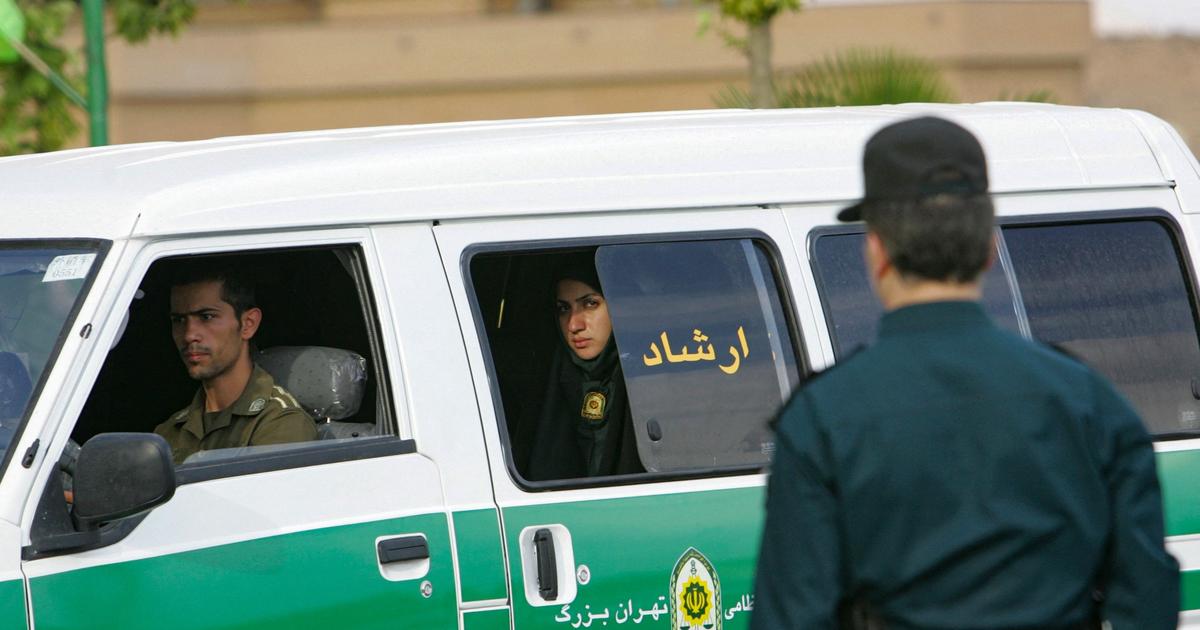Iran's Attorney General Mohammad Jafar Montazeri announced on Saturday that the morality police had been removed by the relevant authorities, according to the ISNA news agency on Sunday (December 4th).
"The morality police have nothing to do with the judiciary, and it was abolished by those who created
it," he said on Saturday evening in the holy city of Qom.
This specific police unit, whose real name is
"Islamic Guidance Patrol"
, had arrested the young Mahsa Amini three months ago, accusing her of having broken the strict dress code of the Islamic Republic.
The death of this 22-year-old Iranian Kurd on September 16, three days after her arrest, sparked a vast protest movement in the country.
The morality police were created under ultra-conservative President Mahmoud Ahmadinejad, to
“spread the culture of decency and hijab”
.
It was made up of men in green uniforms and women wearing the black chador, which covers the head and upper body.
This unit began its patrols in 2006.
Read alsoThe Iranian regime abolishes its morality police
In reality, it followed several decades of repression against Iranians who do not respect to the letter the legal prescriptions decreed by the religious power in place since the Iranian revolution.
Before the creation of the morality police, several more or less official units were already enforcing these laws (notably the 1983 law obliging women to wear the hijab).
Thus throughout the decade of the 1980s, the tightening of moral control was accompanied by the formation of small groups of women, veiled entirely in black, who sometimes violently enforced Islamic rules: it was "the veil or the caning”.
In the years following its creation in 2005, the morality police punished women who did not wear the hijab, or who wore make-up or showy jewellery... but also men who, for example, wore short or too tight trousers. .
According to The Guardian
, it employs around 70,000 agents across the country, to which were added in 2016 around 7,000 informants, responsible for monitoring the population in the street and denouncing passers-by with indecent outfits, as reported by Courrier international.
A police marked by political developments at the top of the regime
The role of the morality police has evolved over the years, depending on the easing or tightening decided by the head of the regime.
Under moderate President Hassan Rouhani, you could see women in tight jeans wearing colorful veils.
But in July, her successor, the ultra-conservative Ebrahim Raisi, called for the mobilization of
"all institutions to strengthen the law on the veil"
, declaring that
"the enemies of Iran and Islam wanted to undermine the values cultural and religious aspects of society by spreading corruption"
.
In recent years, Iranians have become accustomed to downloading applications, such as "Gershad", which warn of the presence of the patrol in an attempt to escape its control.
Read alsoIran: the French ambassador summoned after a critical resolution by the French Parliament
Women who break the dress code of the Islamic Republic risked being taken away by this unit, which works hand in hand with the justice system.
Most of the time, the women pinned down for their breach of morality receive a simple warning or a fine, but each year several tens of thousands of them are arrested, sometimes prosecuted.
According to a survey conducted by Amnesty International and relayed by
Ouest France,
"
more than 2.9 million Iranian women have received a warning from the police for non-respect of the Islamic dress code and 18,081 other women have been referred to the judicial authorities to be prosecuted and sanctioned
" between March 2013 and March 2014.
The announced dismantling of the morality police does not for the moment suggest a relaxation of the laws in force, even if these will be studied again by the Tehran regime.
The concrete modalities of the suppression (which has not yet been confirmed by other Iranian officials) have not been detailed.

